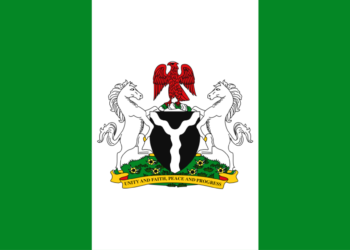In a striking testament to the resilience of Nigeria’s economic reforms, the World Bank announced on Monday that the country’s economy achieved its most robust growth in nearly a decade in 2024, propelled by a vigorous fourth quarter and a significantly strengthened fiscal position.
The report, delivered by the World Bank’s lead economist for Nigeria, Alex Sienaert, during a presentation in the capital, Abuja, underscores the impact of bold policy measures under President Bola Tinubu’s administration while also highlighting persistent challenges, particularly high inflation.
According to the World Bank, Nigeria’s gross domestic product (GDP) expanded by an impressive 4.6% year-on-year in the fourth quarter of 2024, marking the fastest quarterly growth in recent years.
This surge contributed to an overall annual growth rate of 3.4% for 2024, a notable improvement from 2.74% in 2023, as reported by the National Bureau of Statistics (NBS). The services sector, encompassing financial institutions, telecommunications, and transportation, emerged as the primary engine of this growth, expanding by 5.37% in the final quarter, according to NBS data.
The World Bank’s projections indicate continued economic expansion, with an expected growth rate of 3.6% in 2025. High-frequency business indicators cited by Sienaert suggest that this momentum has carried into early 2025, driven by sustained activity in non-oil sectors and stabilizing oil production.
The reforms are starting to bear fruit,” Sienaert noted, pointing to the macroeconomic stability achieved through policy shifts initiated since May 2023.
A cornerstone of Nigeria’s economic resurgence has been its improved fiscal position. The World Bank reported that the federal government’s fiscal deficit narrowed to an estimated 3% of GDP in 2024, down from 5.4% in 2023.
This reduction was largely driven by increased revenues following the removal of costly fuel subsidies and the unification of the exchange rate, which eliminated the implicit foreign exchange subsidy that previously strained public finances.
The elimination of the petrol subsidy, a politically sensitive reform spearheaded by President Tinubu, has been a double-edged sword. While it has bolstered fiscal health, allowing the Central Bank of Nigeria (CBN) to rebuild foreign exchange reserves to over $37 billion, it has also contributed to upward pressure on prices.
Sienaert cautioned that the full revenue potential of this reform is yet to be realized, suggesting further fiscal gains could be on the horizon with sustained policy discipline.
WHAT YOU SHOULD KNOW
Nigeria’s economy is on a path to recovery, with reforms laying the groundwork for stability. Balancing short-term hardships with long-term growth remains critical. The World Bank underscores the need for job creation and inclusive growth to harness Nigeria’s immense potential.
ALSO READ TOP STORIES FROM VERILY NEWS


















